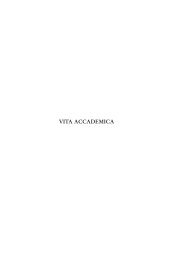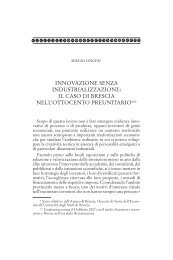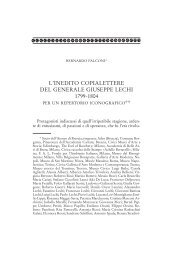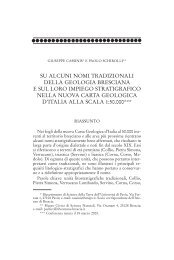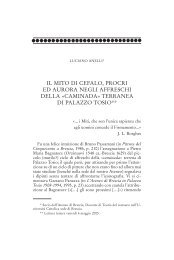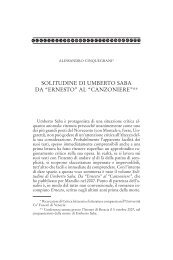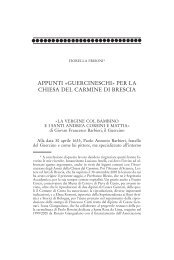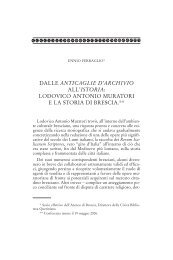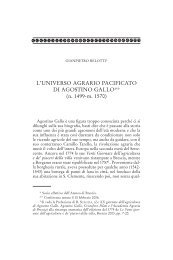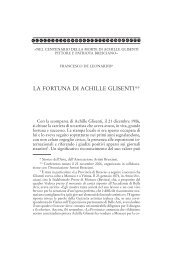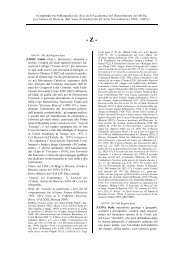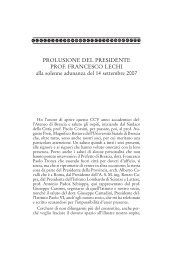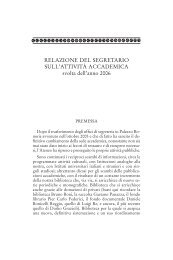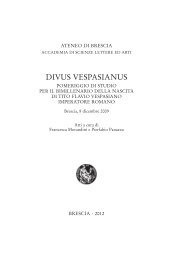do handel's cantatas matter? - BOLbusiness
do handel's cantatas matter? - BOLbusiness
do handel's cantatas matter? - BOLbusiness
Create successful ePaper yourself
Turn your PDF publications into a flip-book with our unique Google optimized e-Paper software.
5] «Cantate, que me veux-tu?», or: Do Handel’s <strong>cantatas</strong> <strong>matter</strong>? 217<br />
missioned for that purpose. But this is conjecture. In fact, trying<br />
to connect Handel’s introduction to Rome with a single<br />
patron is simplistic, and probably futile, as Handel was quickly<br />
drawn into a network of patronage.<br />
A copying bill for music by Handel appears in the accounts<br />
of the Marquis Ruspoli by May 1707, and Ursula Kirkendale<br />
suggests a still earlier relationship in her hypothesis that a<br />
copying bill in the Ruspoli accounts of the previous December<br />
for «una cantata nuova» (no title or composer is given)<br />
refers to Handel’s Arresta il passo12 . Sometime in the spring<br />
of 1707, Handel also must have been commissioned by Cardinal<br />
Carlo Colonna for the psalms and motets that were composed<br />
for the Festival of Our Lady of Mount Carmel on 16<br />
July. The patron who plays the biggest role in Mainwaring’s<br />
account of Handel’s Roman tenure, however, is none of these<br />
but rather Cardinal Pietro Ottoboni, about whose relationship<br />
with Handel little can be said definitively. Colonna and<br />
Pamphili are mentioned by Mainwaring more briefly, Ruspoli<br />
not at all. Mainwaring identifies Ottoboni as one of Handel’s<br />
«greatest admirers» and specifically mentions the importance<br />
of the cardinal’s «large library of Music» and the «excellent<br />
band of performers», which included «the illustrious Corelli»<br />
13 . It seems increasingly clear that in Rome, if not in Italy<br />
more broadly, one must speak of a complex system of artistic<br />
patronage.<br />
Regular gatherings at the houses of patrons or musicians<br />
and more formal concerts both in private homes or churches<br />
supported a shared culture of intellectual thought and values.<br />
A description of Handel in Rome, published in 1737 (by an<br />
anonymous author reporting on the memoirs of a friend),<br />
ing (although later, p. 337, she depends on handwriting analysis as evidence<br />
for her otherwise unsupported claim that Rodrigo and Agrippina were both<br />
composed before 1707).<br />
12<br />
KIRKENDALE, Handel with Ruspoli, pp. 305-306.<br />
13<br />
MAINWARING, Handel, pp. 54-55.



